Photo Story for the Special Initiative “Living the Coup: Collective Diary of Daily Life in Myanmar” by SEA Junction and Partners.
| Title: | Military’s Oppression and Resistance Groups in Karenni (Kayah) State |
| Photographer | Tamwe |
| Date: | December 2022 |
On February 1, 2021 Myanmar’s military carried out a coup that deposed the democratically elected government and shattered a decade of political and social development overnight. following the coup, Karenni people joined peaceful protests against the military coup After the security forces’ brutal crackdown, murdering and killings of peaceful protesters, young people in Karenni State set up barricades and roadblocks and finally decided to take arms to protect themselves from killing by the military.
According to the report called “How can we survive in the future” released by the Karenni Human Rights Group, the Kayan Women’s Organization, and the Kayah State Peace monitoring network, junta forces have destroyed 1190 houses, 33 religious buildings, and 4 clinics by burning down and/or putting heavy weight bombs from the fighter jets between May 2021 to September 2022 in Karenni State.
As the majority of urban protests were quashed by the military crackdown, many young Burmese retreated into the jungles and mountains of Myanmar’s rugged periphery to join the People’s Defence Force (PDF), the military wing of the National Unity Government (NUG), a body of democratically-elected legislators and officials that is widely accepted by the civilian populace to be the legitimate government of Myanmar. Large swathes of Myanmar’s border regions have been embroiled in civil war for decades and local ethnic populations have long suffered under military repression. The resultant patchwork of self-administered regions protected by mountains, jungles and well established ethnic armed groups is the perfect training ground for a new generation of Burmese freedom fighters.
Kayah State -now called as- Karenni State becomes one of the most active states of the country in resilient fights and growing numbers of freedom fighters. The state, having the long history of political resistance and presence of two major ethnic armed organizations become one of the revolution’s prominent places where different groups of young freedom fighters, including K.N.D.F (Karenni National Defense Force) shelter as training grounds and battle area to control the state against the military. The KNDF is formed with PDF from Karenni State, two Southern-Shan based PDF, some organizations from townships of Karenni State. The KNDF follows the seven-points defense policy issued by the Ministry of Defense under the National Unity Government with the aim of ensuring that the defense sector will be under the democratic control and in accordance with a federal system.
Biography
Ta Mwe
Ta Mwe is a Burmese documentary photographer with experience covering a wide range of political and social stories and events throughout Myanmar. After many years working for national and international publications and organizations as a photographer, videographer and video editor, Ta Mwe’s recent work has focused on analogue still photography, covering first the COVID-19 crisis and then the country’s anti-coup protests. Due to the political situation in Myanmar the name Ta Mwe is an alias and this bio has been heavily redacted to remove any identifying information.
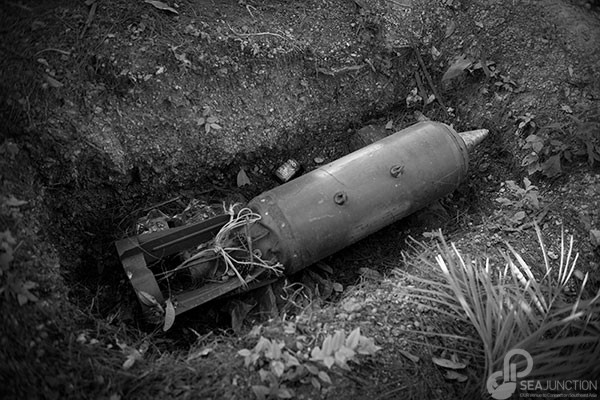
Unexploded bomb dropped by the Myanmar military’s fighter jet is seen at a remote camp of Karenni Nationalities Defense Force (KNDF) in Karenni (Kayah) state.

Unexploded missile which was fired by Myanmar military to the west side of Demoso township is seen at Karenni Nationalities Defence Force (KNDF) office at a village in Demoso township, Karenni (Kayah) state, Myanmar in March 2022.
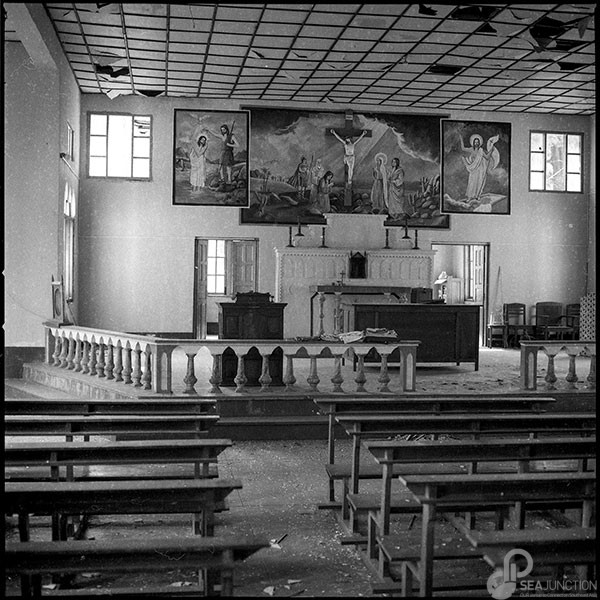
A church destroyed by Myanmar’s military airstrike is seen in Saungdular village, Demoso township, Karenni (Kayah) state, Myanmar.
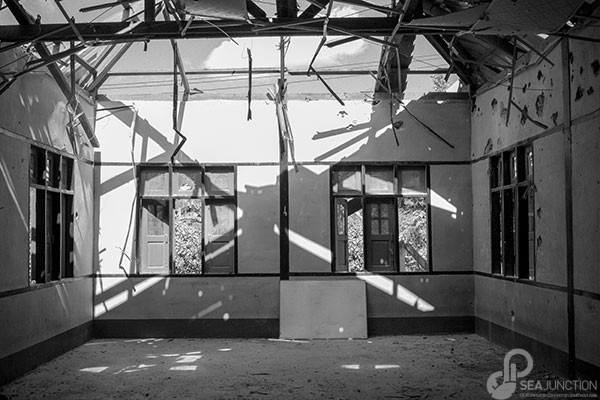
A preschool building destroyed by artillery shell of Myanmar’s military is seen in Demoso township, Karenni (Kayah) state, Myanmar. During this shelling, 5-year-old child died and injured 8 people taking shelter inside the preschool. Myanmar military was using series of artillery shell attacks to terrify and kill civilian living in resistance forces’ controlled area.
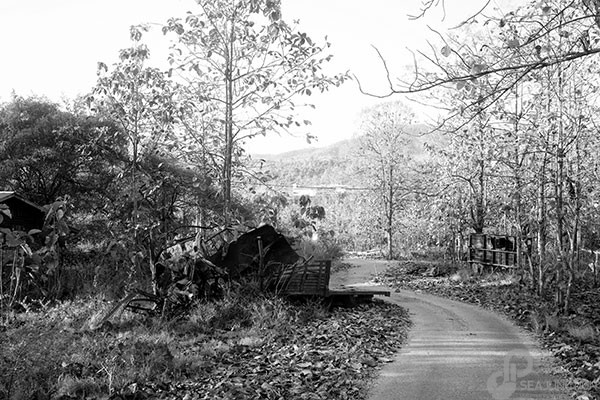
Myanmar’s military trucks destroyed by the anti-vehicle mines, set by the resistance forces is seen Nang Phe village, Karenni (Kayah) state, Myanmar. Nang Phe village was once a trading-point for the region and it used to be a rest-area point with popular restaurants for travelers, it has became a deserted village with destroyed buildings since the fighting between Myanmar’s military and local resistance.
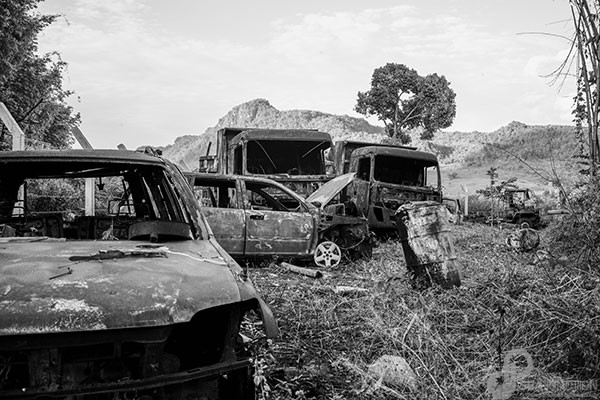
Vehicles, used by the villagers before they were killed and burnt by the Myanmar’s military is seen on the massacre anniversary date, 24 December 2022 in Moso village, Karenni (Kayah) state, Myanmar. The bodies were found on eight burned vehicles and five motorbikes near the village of Moso, Karenni (Kayah) state on early morning of 25 December 2021. According to the Myanmar military’s state media, they have “captured dead” as vehicles did not stop when they asked to do so in Moso village.
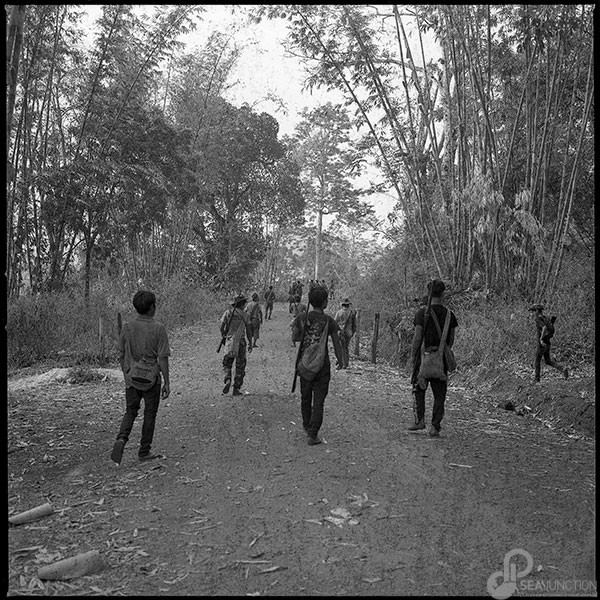
Villagers carrying homemade hunting rifles walk around the village as they came back from tactical training in Hpruso township, Karenni (Kayah) State, Myanmar in March 2022. Many people around the Myanmar has joined ‘People’s Defense Armed Forces’ which was founded by National Unity Government (NUG) after the Spring Revolution to defend and protect lives from Myanmar military’s human rights violations and offensive attacks on the citizens.
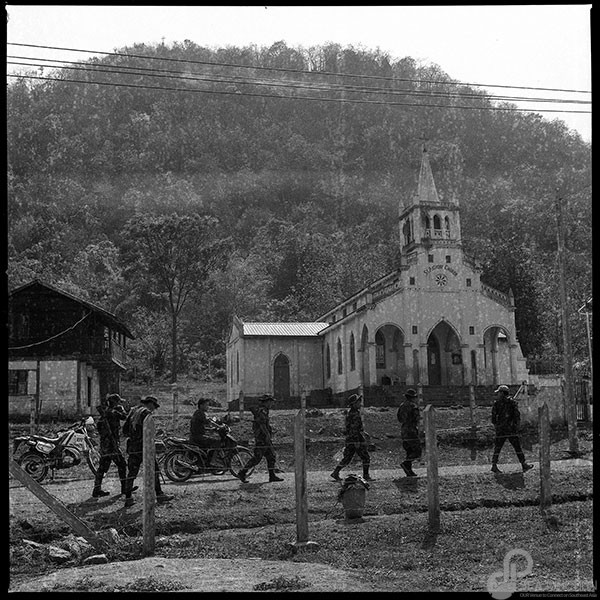
Resistance fighters of the Karenni Nationalities Defense Force (KNDF) patrolling in remote villages, Karenni (Kayah) state, Myanmar. The Karenni Nationalities Defense Force (KNDF) was formed on 31 May 2021 in Karenni (Kayah) state to carry out the armed revolution. KNDF have 21 battalions and over 8,000 fighters and mainly operating military defense missions in Karenni (Kayah) state.
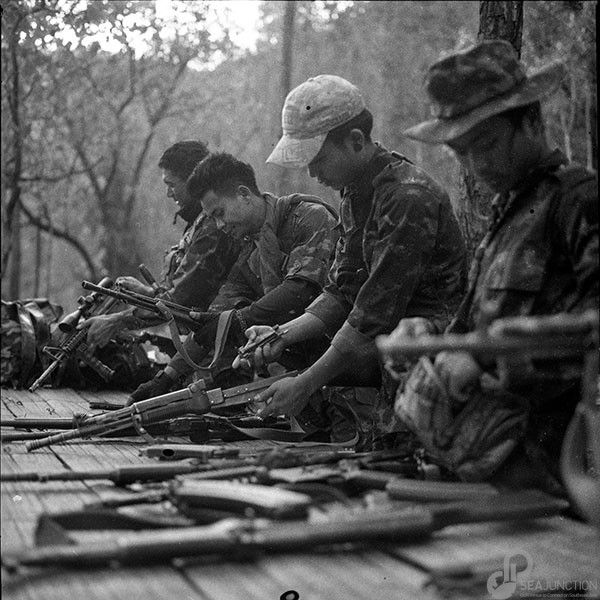
Resistance fighters of Karenni Nationalities Defense Force (KNDF), Battalion 8, perform firearm maintenance at a front-line base camp in Demoso township, Karenni (Kayah) state, Myanmar . The Karenni Nationalities Defense Force (KNDF) was formed on 31 May 2021 in Karenni (Kayah) state to carry out the armed revolution. KNDF have 21 battalions and over 8,000 fighters and mainly operating military defense missions in Karenni (Kayah) state.
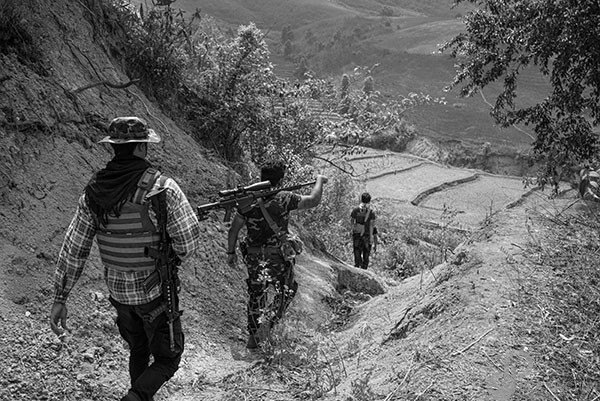
Soldiers of Karenni Nationalities Defence Force (KNDF) march toward training ground for firearm training at a base camp in Demoso township, Karenni (Kayah) state, Myanmar.
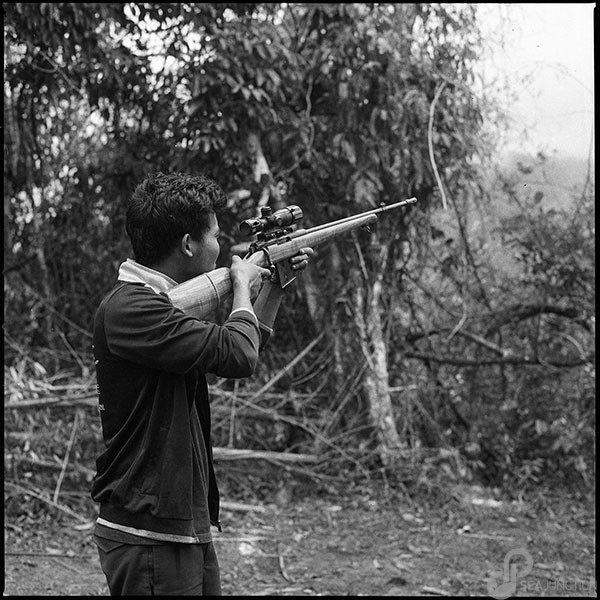
A member of the weapon factory tests fire a newly produced rifle at undisclosed location in Karenni (Kayah) state, Myanmar. Over 20 people are producing rifles and improvised explosive device (IED) at the weapon factory in Karenni (Kayah) state to counter Myanmar military’s offensive attacks and supply chain network.
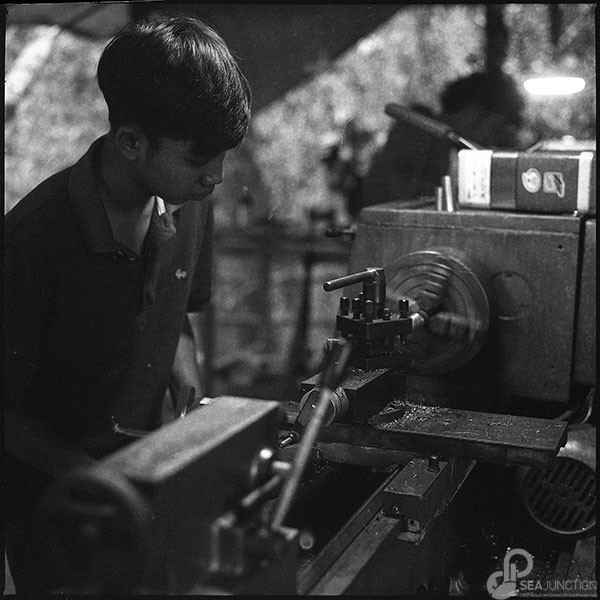
A member of the weapon producing rifle barrel is seen at the weapon factory at undisclosed location in Karenni (Kayah) state, Myanmar. Over 20 people are producing rifles and improvised explosive device (IED) at the weapon factory in Karenni (Kayah) state to counter Myanmar military’s offensive attacks and supply chain network.
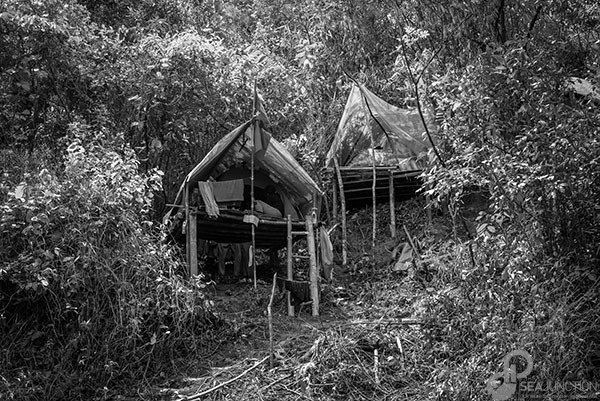
Base camp of Moebye People’s Defence Froce is seen in a forest Karenni (Kayah) state, Myanmar in March 2022. The People’s Defence Force (PDF) is the resistance army founded by the National Unity Government (NUG) to counter Myanmar’s military’s offensive attacks.
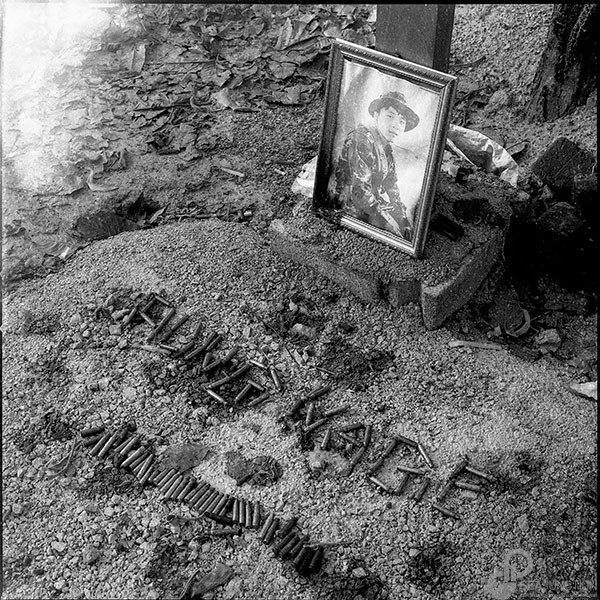
The grave of freedom fighter, is seen with his portrait photo at a cemetery in remote village in Demoso township, Karenni (Kayah) state, Myanmar.
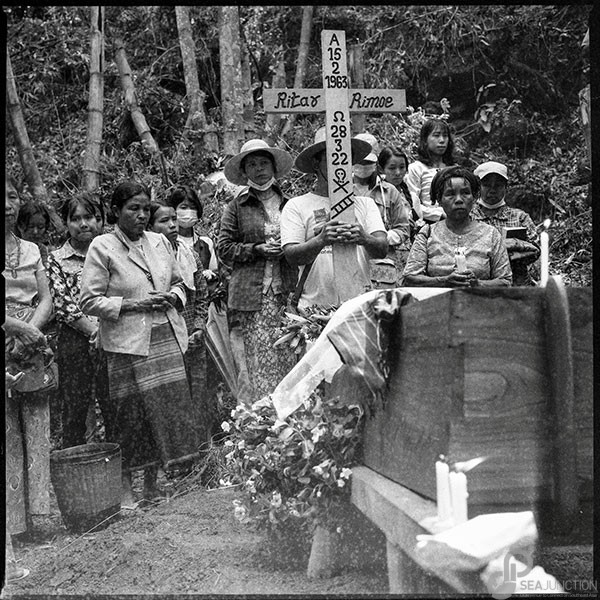
Family members pray during a burial service at a cemetery in Demoso township, Karenni (Kayah) State, Myanmar. Artillery shells fired by the Myanmar military exploded next to Ritar the previous evening as she was preparing to go out on a motorbike with her brother.
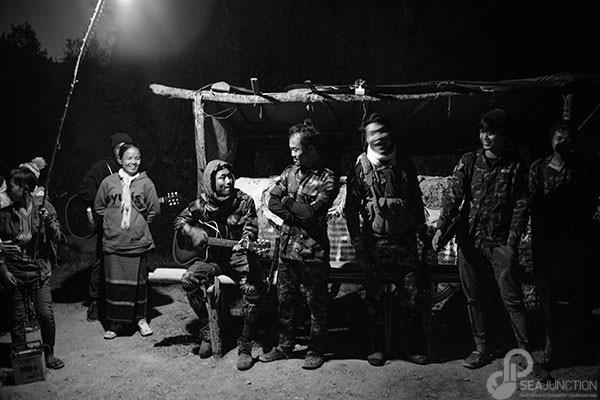
Resistance fighters sing carol songs together with a group of villagers in the evening in Demoso township area, Karennin (Kayah) state, Myanmar on 23 December 2022. According to the 2014 Myanmar Census, almost half of Karenni(Kayah)’s population is Buddhist, 46% are Christian, including both Catholic and Baptis.
Organizers
“Living the Coup: Collective Diary of Daily Life in Myanmar” is a special initiative of SEA Junction in collaboration with Asia Justice Rights (AJAR) to document how people are living in present-day Myanmar and their coping with daily security, economic and health challenges. We are asking for short stories in the form of written, photo essays or art illustration, in Burmese Language (to be later translated into English) or in English. For more background and other stories click here.
SEA Junction
SEA Junction, established under the Thai non-profit organization Foundation for Southeast Asia Studies (ForSEA), aims to foster understanding and appreciation of Southeast Asia in all its socio-cultural dimensions- from arts and lifestyles to economy and development. Conveniently located at Room 408 of the Bangkok Arts and Culture Center or BACC (across MBK, BTS National Stadium), SEA Junction facilitates public access to knowledge resources and exchanges among students, practitioners and Southeast Asia lovers. For more information see www.seajunction.org, join the Facebook group: http://www.facebook.com/groups/1693058870976440/ and follow us on twitter and Instagram @seajunction
Asia Justice and Rights (AJAR)
AJAR is a non-profit organization, based in Jakarta, Indonesia, whose aim is to contribute to the strengthening of human rights and the alleviation of entrenched impunity in the Asia-Pacific region. Its work focuses on countries involved in transition from a context of mass human rights violations to democracy, where it strives to build cultures based on accountability, justice and a willingness to learn from the root causes of human rights violations to help prevent the recurrence of state-sanctioned human rights violations. For more information, see https://asia-ajar.org.


